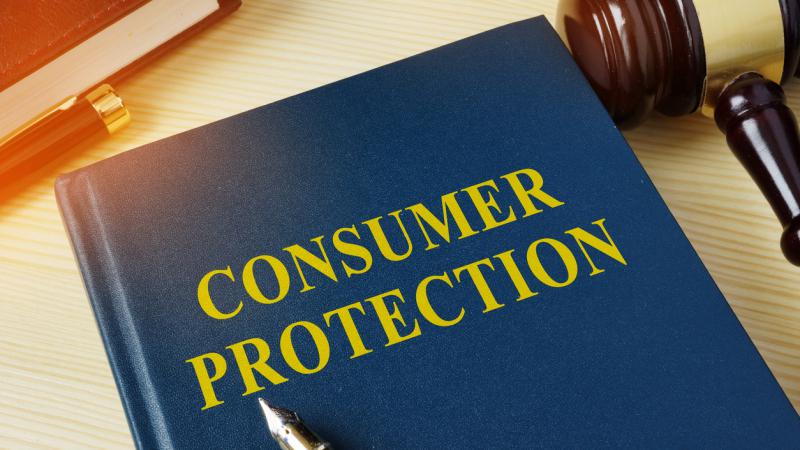|
Attacking the Abuse Crisis with Consumer Protection Laws
FSSPX News
The sex-abuse scandal, which continues to engulf the Catholic Church, has brought down the ire of secular authorities throughout the United States. In an attempt to hold Catholic dioceses accountable, one State has turned to its consumer protection laws. Will this help alleviate the problem? The West Virginia ExampleEarlier this year, in March 2019, West Virginia, by and through its Attorney General, brought a two-count complaint against the Diocese of Wheeling-Charleston and its former bishop, Michael J. Bransfield, alleging violations of the West Virginia Consumer Credit and Protection Act (WVCCPA). The Act, which is intentionally broad in scope, sanctions advertising services that are not delivered and failing to warn of dangerous services. With respect to the local Catholic diocese, West Virginia claims that the diocese deceived Catholics (consumers) by advertising that its schools and other programs were safe despite having hired clergy who had credible accusations of sexual abuse in their past; failing to do background checks on lay hires; and knowingly employing priests and laity who had admitted to engaging in sexual abuse. This behavior, according to West Virginia, created an unsafe environment for minors which the diocese failed to warn people about. The Complaint seeks a series of civil penalties against Diocese of Wheeling-Charleston and Bishop Bransfield, including disgorgement. That means, should West Virginia prevail in court, that the Diocese of Wheeling-Charleston could be forced to surrender any revenue it generated through its schools and similar programs. The Diocese may also be forced to pay restitution to anyone who used these services. Unfair and Deceptive Acts and PracticesEvery State has what are called Unfair and Deceptive Acts and Practices (UDAP) statutes, otherwise referred to as consumer protection laws. UDAP statutes are often the only line of defense between consumers and businesses which seek to leverage their superior position in the market to the detriment of others. UDAP statutes are hardly uniform from state to state, and some come with broad exemptions written-in by legislators or grafted on through appellate court decisions. For instance, the Michigan Consumer Protection Act, once regarded as one of the strongest UDAP statutes in the country, has since been eviscerated by a series of Michigan Supreme Court decisions. Generally speaking, UDAP statutes are written broadly so as to provide ongoing protection for consumers in the face of ever-shifting business practices. Given how rapidly technology, particularly the Internet, has changed the ways businesses advertise and supply goods and services, this breadth makes sense. Critics of UDAP statutes, however, warn that overly broad interpretations and applications of said laws have a chilling effect on business innovation and leave many businesses uncertain which practices are favored and which are not. At the same time, a debate rages that certain businesses should be exempt from UDAP statutes. For example, legal services and other licensed professional services are often left out of UDAP coverage, though not always. Government-run entities are typically exempt as well, which means that public schools do not fall under UDAP statutes, though private—including Catholic—schools may. This is the position that West Virginia has taken. Will other States soon follow? Innovative but Ill-Fitting?West Virginia’s move to use the WVCCPA to combat the sexual-abuse crisis in the Church is innovative, but will it help? Up until recently, it is doubtful that most Catholic dioceses believed that they or their commercial ventures, such as schools, could be subject to UDAP coverage. It is still possible that the Diocese of Wheeling-Charleston will argue for an exemption from the West Virginia law or mount a credible affirmative defense against liability. Even so, what happens in West Virginia stays in West Virginia. Other States are free to take advantage of their local judicial machinery to hold Catholic dioceses accountable under their UDAP laws. A big unanswered question is whether applying UDAP statutes to diocesan commercial behavior will adequately address the crisis. Monetary penalties alone, no matter the size, may not be enough. That is to say, those clerics and laity who perpetuate abuse may not be dissuaded from their abhorrent behavior simply because there is a background risk that the diocese they work under may face economic sanctions down the road. At the same time, since UDAP give broad standing to all consumers who may have been deceived by a diocesan practice such as false advertising or the provision of unsafe services, monetary damages awarded under a UDAP case against a diocese may be spread out to individuals who were not directly harmed physically and emotionally by abusive cleric and lay behavior. At this point, it is now certain that secular authorities across the country have grown impatient with the Catholic Church. In addition to seeking criminal penalties against individual abusers, there is now a desire in some areas of the country to inflict macro-level punishment on the American Church as a whole for what is widely seen as a systemic problem. Whether UDAP statutes can have a disciplining effect on the Church remains to be seen.
|
.
Any original material on these pages is copyright © BishopAccountability.org 2004. Reproduce freely with attribution.
